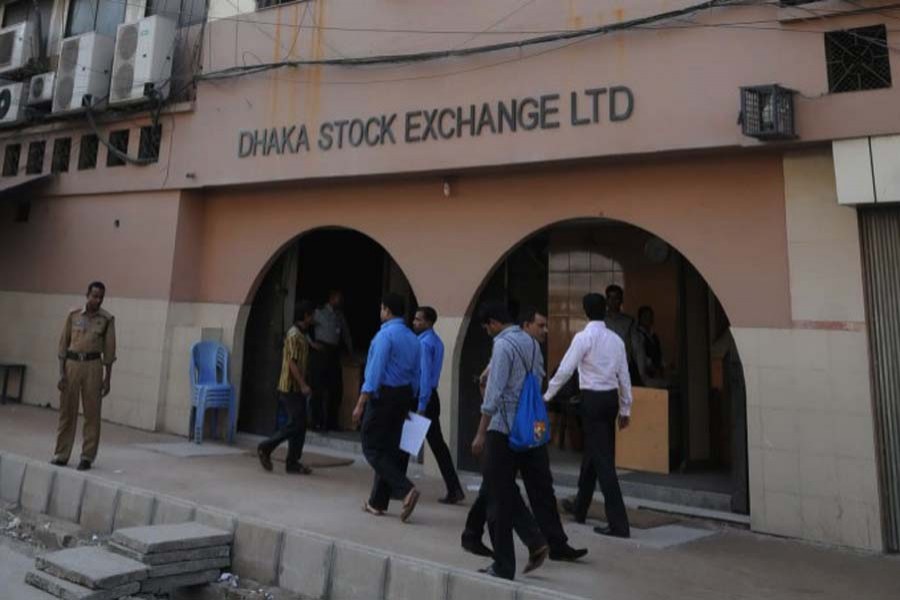A rapid fall in share prices has wiped out around Tk 710 billion in market capital from the Dhaka Stock Exchange (DSE) in a year.
Its main index, DSEX, shed 50 points to 4,281 on Tuesday following a continuous drop in share prices that left the market capitalisation at over Tk 3.3 trillion.
On the same day a year ago, DSEX was at 5,655 while the market capitalisation was over Tk 4.1 trillion, reports bdnews24.com.
Yawer Sayeed, the managing director and CEO of asset management firm AIMS of Bangladesh, sees the loss in market capital as “worrying”.
“The stock market should not be considered something unrelated to the financial management structure. The overall situation is not good. The market should not be seen as separately,” he said.
The DSE’s market capitalisation is 13 per cent of Bangladesh’s GDP while the total market capitalisation of the bourses across the world, according to The Global Economy, was around 71 per cent of global GDP. The amount is 76.63 per cent in India.
Many see last year’s fall in share prices bigger than the 2010 capital market debacle.
The stock market suffered throughout last year because of different reasons like liquidity crisis, an audit demand issue between the telecom regulator and mobile phone operators, and departure of foreign investors.
The downward trend only worsened in the new year as the DSEX now stands at where it was 44 months ago. The index dropped below this level for the last time in May 2016.
Professor Mizanur Rahman of Dhaka University’s accounting department blamed a “lack of good governance” at the stock market, including at the DSE and the regulator BSEC, for the continuous fall in share prices.
“We need a big change, but we don’t see any strong measure from any side now,” he said.
“Money is not coming to the market due to a liquidity crisis in the financial institutions while investors have already left after suffering losses. The handful of investors are also leaving by selling off their shares,” Prof Mizanur said.
Asset manager Sayeed said measures like renovating the BSEC can have some positive psychological effects on the market.
“But support is a must for the long-term well-being,” he added.
He also pointed to worrying signs that all the economic indices are staying in the negative territory in Bangladesh.
“The credit flow to the private sector is shrinking while the government is borrowing rapidly from the banks to invest in its big projects,” he said.
Asked about the future of the market, Sayeed said, “The market won’t turn around suddenly as it had not gone from bad to worse in a few days. It will take time for the market to rebound since it has been declining for a long time.”


